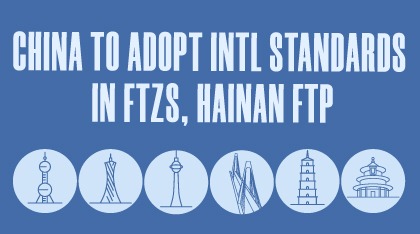
Japanese retail chain Ito Yokado plans to restructure its business in China, and its comprehensive department store in Beijing is expected to be transformed into a food supermarket, as department stores continue to adjust their business models at a time when online shopping has changed the shopping habits of Chinese consumers.
Ito Yokado said it would like to improve the profitability of its China business, including closing two department stores that suffered losses in Chengdu, Sichuan province. The company also plans to open a new mall in 2028 in Chengdu where middle-income and well-off people congregate, with offerings of high-quality products, Japanese news media outlet Nikkei reported.
Meanwhile, its department store in Chaoyang district of Beijing will be transformed into a food supermarket. The venue has changed its name to Hua Tang Xin Chen Life, and is jointly operated by Beijing Xinchen Commercial Group and Ito Yokado's joint venture in Beijing.
The mall will focus on selling popular food products on the underground floors of the supermarket. The floors above ground are undergoing renovation, and will team up with popular Japanese restaurant chains to attract more customers.
The new restaurants include Hama Sushi, a Japanese conveyor belt sushi restaurant chain, and the new businesses will start operations in early 2025, the company said on social media platform Xiaohongshu.
In the past two to three decades, China's retail sector has experienced a significant shift, with an increasing number of multinational chains entering the market and the rise of e-commerce shopping.
Nevertheless, the experience of going out to eat and shop cannot be replaced by online shopping. Consumers will feel lonely and isolated if they keep staying at home and order online deliveries, and they have a demand for socializing. Online and offline sales are expected to achieve a balance, said Rachel Lee, general manager of Kantar Worldpanel China, a research institute on fast-moving consumer goods.
"For food and drinks, the offline ready-to-eat and ready-to-drink scenes have been very important for consumers. With the emergence of various offline business formats such as discount stores, membership stores and regional small retailers, there is a rebound trend of offline sales," Lee said.
"Consumers expect better products that are healthy, boast high qualities and meet their emotional demands. Offline stores that are located close to homes and offer good quality-price ratios can satisfy the demand of certain consumer groups," she added.
Since 2014, Ito Yokado has shrunk its operational scale in China to cut losses. The number of stores in Beijing has dropped from over 10 to one currently. In total, the company operates 10 department stores in China, including one in Beijing and nine in Chengdu.
In its fiscal year 2024 that spanned from March 2023 to February this year, Ito Yokado achieved sales revenue of 7.7 billion Japanese yen ($50.8 million) in its overseas markets, including China, and suffered losses of 1.52 billion Japanese yen, according to its earnings report.
The company had been making losses for five consecutive years since 2014 but briefly recovered in 2019 before it slipped back into losses the following year. As of last year, Ito Yokado's accumulated losses exceeded 250 billion Japanese yen, according to the company.
Besides, Ito Yokado has closed some department stores in Japan in the past few years to stem losses, and the company said it plans to reduce employee strength by about 20 percent to cut costs and increase efficiencies to meet the challenges of the retail sector.
Meanwhile, other Japanese department stores such as Isetan and Aeon have also suffered losses and closed stores. Isetan closed its Shanghai store in June; it currently operates just one store in China — in Tianjin.
Aeon, after losing money in the Chinese mainland for eight consecutive years, has adjusted its business strategy and transformed into a food supermarket to increase pedestrian footfall.






